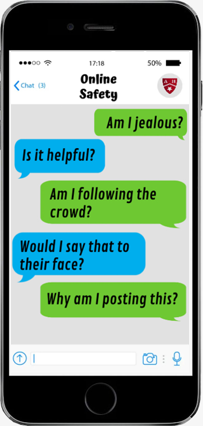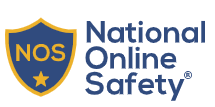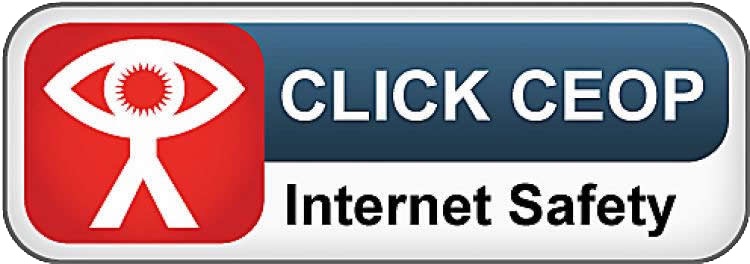Safety Including Online
You can find lots of helpful information in our Online Safety Guides
May 2024
The Online Safety Group have been very busy! Watch and be fascinated by our captivating exclusive. The top, terrific team put questions to none other than Mrs Fordham and Miss Simmons about the heated topic of WhatsApp. Watch our exclusive. Find out what's going on. Listen to what children really need to know. Don't miss this must see, one of a kind opportunity.
Thank you, Online Safety Group, for tirelessly making our school a safer place to be!
November 2024
Online Safety - Think Before You Send...
Following on from Safer Internet Day, we have been discussing what is acceptable to post online and the things we need to think about before doing so. We know people may behave differently online than they do in person. The audience is invisible so many feel protected by their screens- think 'keyboard warriors'. Sadly, this means that sometimes people will misuse social media platforms like WhatsApp to shame and bully others. Posting online is instant, public and more often than not, permanent. Once you post, you lose control of what happens to it - it only takes one friend to share it on their own profiles for it to be completely out of your hands..
The digital world is the real world with real consequences. We are encouraging children to ask themselves the following before hitting send!

March 2023
WhatsApp Pupil View
WhatsApp is a free, multi-platform messaging app that lets users make video and voice calls, send text messages and share their status with other users. In an ever evolving digital world, we know that children are joining the world of online much younger and using it for longer. At Almond Hill, we are noticing an increase in problems arising between children on WhatsApp. Last year, we did a survey to gauge the use of WhatsApp across the year groups and the impact this has on children. You can hear an overview of these results in the video below and the detailed results follow.
September 2022
Tools to Support Families
Is My Child at Risk of Exploitation?
Important Contacts:
Police - tel: 999 or 101
Police care about the safety of children and young people. If you think your child is immediate danger then call 999, or you can report concerns by dialling 101.
Barnardo's - tel: 0208 5508 822 - www.barnados.org.uk
Barnardo's provides a range of services to children, young people, and families across the UK. Services address problems including sexual exploitation, substance misuse and homelessness.
NSPCC - Child Protection Helpline - tel: 0808 800 5000
You can ring NSPCC Helpdesk to report concerns and get advice if you are concerned your child is being exploited. They are available 24 hours a day.
FRANK - tel: 0800 776 600 - www.talktofrank.com
A free service providing advice to people of all ages about drugs: can provide information about local support services.
Crimestoppers - 0800 555 111 - crimestoppers-uk.org
Crimestoppers guarantees anonymity to all callers and website users. If you are concerned a young person is being sexually exploited, call or visit their website to provide information.
PACE - Parents against Child Exploitation - tel: 01132 405 226
Offers a national support team who can talk to you about immediate concerns, helps you to assess the level of danger your child is in and signpost you to agencies in your area. They take calls during office hours.
Think You Know - www.thinkuknow.co.uk
CEOP (Child Protection Online Protection) provide information about helping your children to stay safe online. You can report online concerns to them.
Missing People Charity - tel: 116 000 - www.missingpeople.org.uk
Missing People is the only charity in the UK which specialises in, and is dedicated to, bringing missing children and adults back together with their families.
Parents Protect - tel: 0808 1000 900 - www.parents.co.uk
Information and resources which aim to raise awareness about child sexual abuse, answer questions and give adults the information, advice, support and facts they need to help protect children.
Signposting for Children and Young People
CEOP helps any child or young person under the age of 18 who is being pressured, forced or tricked into taking part in sexual activity of any kind. This can be something that has taken place either online or in ‘the real world’, or both. The CEOP Safety Centre has clear information and advice on what can be reported to CEOP, the reporting process and what will happen if you do decide to make a report. You can visit the CEOP Safety Centre and make a report directly to CEOP by clicking the Click CEOP button.
If you are experiencing online bullying or something else online has worried you please speak to an adult you trust, or you can talk to Childline at any time on 0800 1111 or at www.childline.org.uk.
Sign posting for adult stakeholders
CEOP is a command of the National Crime Agency and is dedicated to tackling the sexual abuse and exploitation of children and young people. CEOP helps children and young people under the age of 18 who have been forced or manipulated into taking part, or are being pressured to take part, in sexual activity of any kind. This can be both online and offline. The CEOP Safety Centre offers information and advice for children and young people, parents and carers and professionals.
You can visit the CEOP Safety Centre and make a report directly to CEOP by clicking the Click CEOP button.
Online bullying or other online concerns should not be reported to CEOP and children and young people should be directed to speak to an adult they trust, and/or referred to Childline, if they would like to speak to someone about how they are feeling.
Advice for Parents and Carers
Children use the internet in different ways depending on their age, here are some checklists for parents that give you top tips on how to help them stay safe. www.internetmatters.org/advice
Please use this address for a wide range of support and advice for parents or carers who would like to know more about keeping their children safe on the internet: www.childnet.com/parents-and-carers
Please may I remind all parents that responsible use of the internet and other forms of technology is best achieved through close monitoring of children’s use by parents. There is a wide range of information on our school website regarding safety and we are always willing to speak to parents individually should they need some specific support.
Online Gaming and Live Streaming Apps
We spend a lot of time teaching children about online safety and appropriate use of the technology they have access to so they learn to use it safely. However, it is vital that carers and parents monitor use so you can ensure your child communicates properly and you are able to report any inappropriate responses.
We appreciate that the online gaming world changes and is updating frequently. We receive links to guide you to information that may support you to keep your child safe online. Please see the links below.
Please use this website for good advice on protecting your child online: www.kidscape.org.uk/advice
Many popular games include online message features. Certain games allow others to message you whether people are 'online friends' or just strangers. Roblox is a social platform for games that is currently very popular. There are games that allow strangers to message the players. Please be aware of this if your son/daughter is playing as some messages could contain inappropriate content.
Follow the link below for a 'Guide to Live Streaming Apps'. We would encourage all parents to look at this as it gives some useful information about which streaming apps are available, how they work and how to keep children safer online.
How to Set up Parental Controls
https://nationalonlinesafety.com/

This guide will help you set up parental controls to provide your child with a safer online environment. Parental controls can help to protect your child from seeing something that they shouldn’t - although it is important to emphasise that no system is effective all of the time so it is important to engage with your child and talk to them about their online life regularly.
Information to Support Parents
What Have We Been Doing in School?
2025
- January (1)
- February (1)
- March (0)
- April (0)
- May (0)
- June (1)
- July (0)
- August (0)
- September (0)
- October (0)
- November (0)
- December (0)
2024
- January (0)
- February (1)
- March (2)
- April (0)
- May (0)
- June (0)
- July (0)
- August (0)
- September (1)
- October (0)
- November (0)
- December (0)
2023
- January (0)
- February (1)
- March (0)
- April (0)
- May (0)
- June (0)
- July (0)
- August (0)
- September (1)
- October (0)
- November (0)
- December (0)

